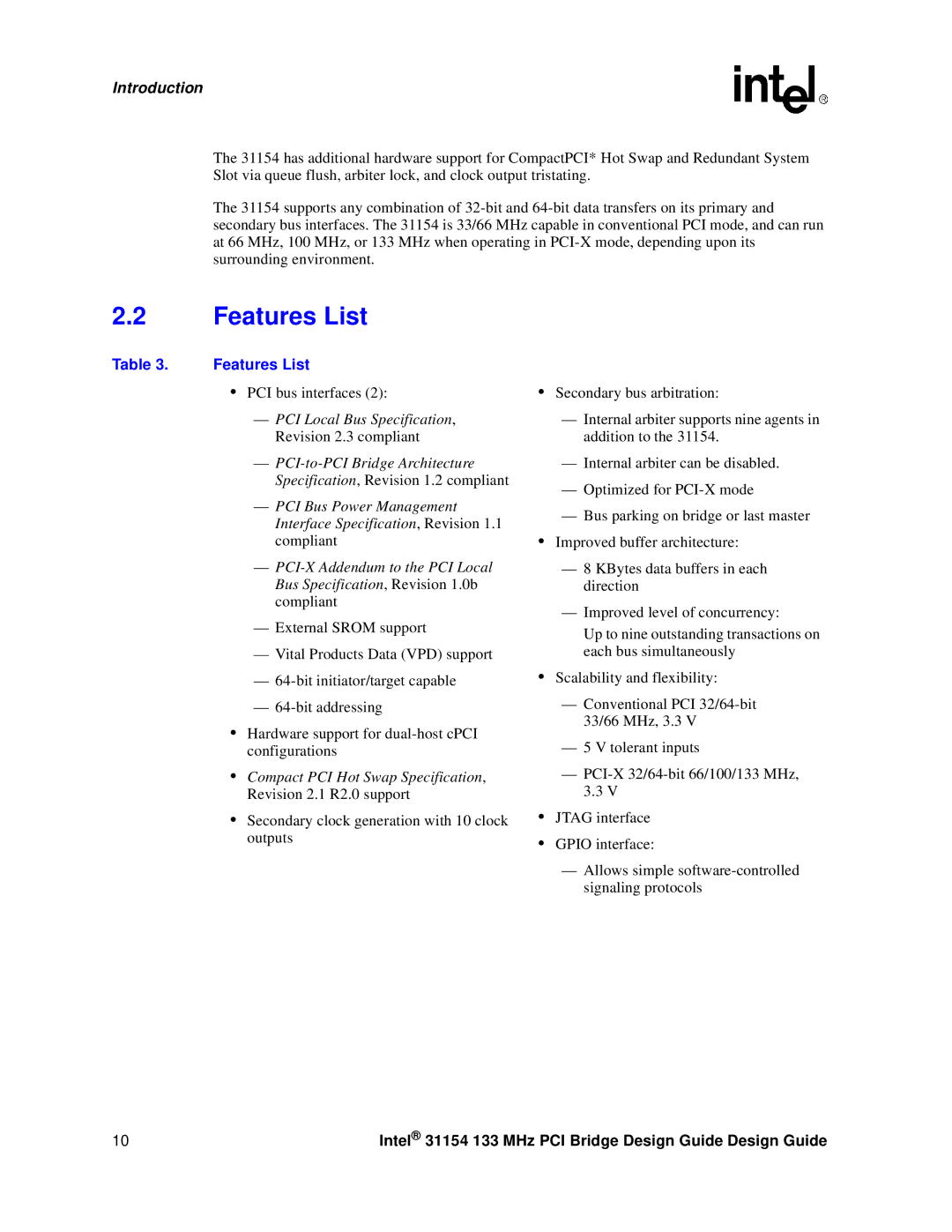Introduction
The 31154 has additional hardware support for CompactPCI* Hot Swap and Redundant System Slot via queue flush, arbiter lock, and clock output tristating.
The 31154 supports any combination of
2.2Features List
Table 3. | Features List |
•PCI bus interfaces (2):
—PCI Local Bus Specification, Revision 2.3 compliant
—
—PCI Bus Power Management Interface Specification, Revision 1.1 compliant
—
—External SROM support
—Vital Products Data (VPD) support
—
—
•Hardware support for
•Compact PCI Hot Swap Specification, Revision 2.1 R2.0 support
•Secondary clock generation with 10 clock outputs
•Secondary bus arbitration:
—Internal arbiter supports nine agents in addition to the 31154.
—Internal arbiter can be disabled.
—Optimized for
—Bus parking on bridge or last master
•Improved buffer architecture:
—8 KBytes data buffers in each direction
—Improved level of concurrency:
Up to nine outstanding transactions on each bus simultaneously
•Scalability and flexibility:
—Conventional PCI
—5 V tolerant inputs
—
•JTAG interface
•GPIO interface:
—Allows simple
10 | Intel® 31154 133 MHz PCI Bridge Design Guide Design Guide |
